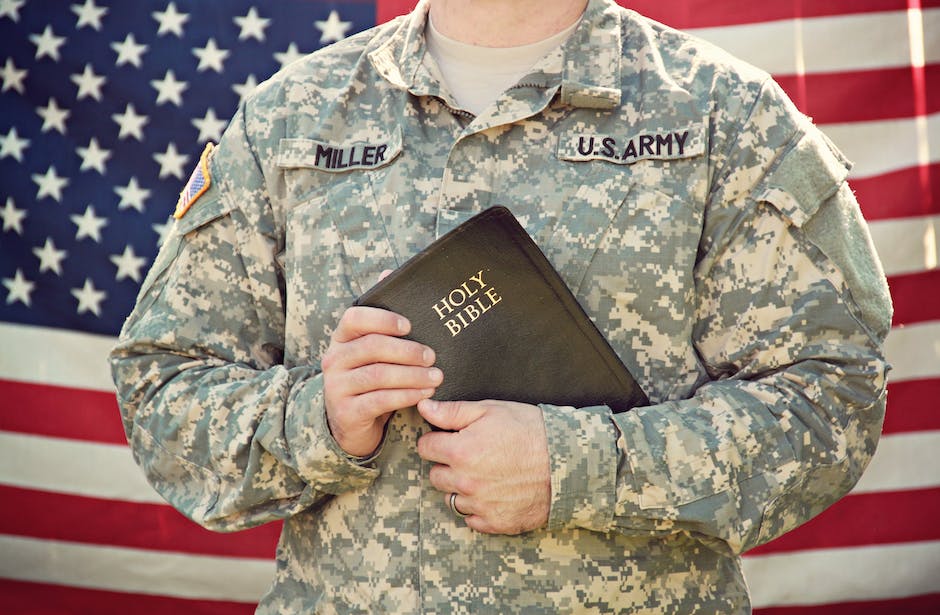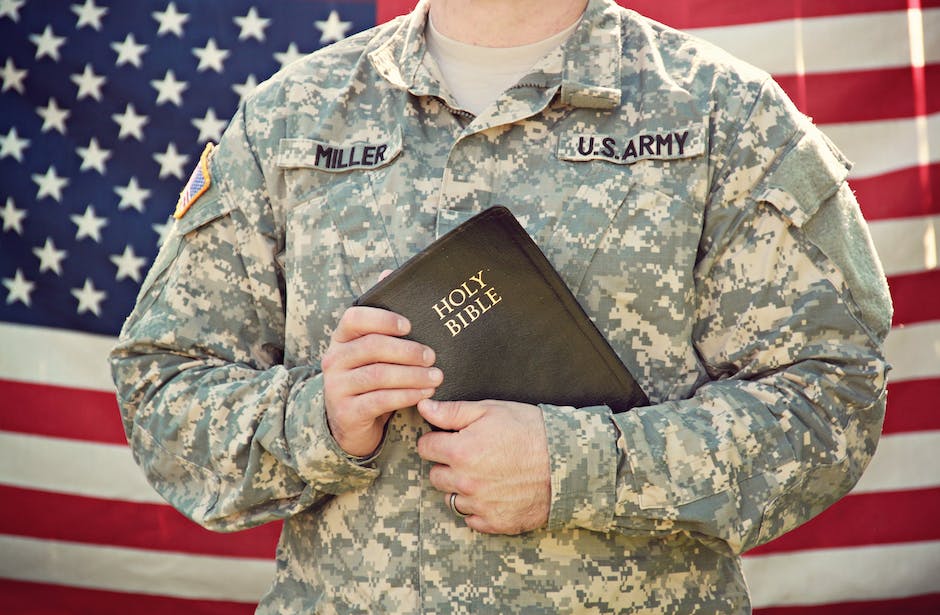Have you ever thought about what it takes to become a successful contractor — especially a veteran contractor? For those who have served, the opportunity to land a contracting gig is something to be taken seriously. This can be especially challenging for veterans, who are vying for the same contracts as non-veterans, but also need to demonstrate that their experience meets the requirements for the contract. In this guide, we’ll explore the necessary steps to get a veteran contract and how to secure it. Learn what to expect, and how to be a successful veteran contractor.
Veterans may be eligible for a number of contracts specifically intended for them. These contracts include those offered to service-disabled veteran-owned small businesses, Veteran-owned small businesses (VOSBs), also known as service-disabled Veteran-owned businesses (SDVOSBs) and Veteran-Owned Business Enterprises (VBEs). Additionally, some of the contracts are set-aside for these specific groups.
The U.S. Small Business Administration (SBA) is the primary advocate for small business owners and administers a number of programs that encourage veteran-owned business opportunities, including veteran contracts. There are a number of programs available to veterans, such as the Veteran Entrepreneurship Training Program, that are designed to help veterans start businesses.
The Federal Supply Schedules (FSS), also known as Multiple Award Schedules (MAS) and GSA Schedules, are a set of contracts that provide goods and services to the federal government and state, local and tribal government partners. For service-disabled Veteran-owned businesses, there are certain set-aside contracts and agreements provided through this system.
The U.S. Department of Veterans Affairs (VA) also has programs to offer veteran-owned businesses government contracts. The VA Supportive Services for Veteran Families Program (SSVF) and the Homeless Providers Grant and Per Diem Program (GPD) are two contracts that are set aside for veteran-owned businesses. In addition, the VA offers the Veteran Employment Center (VEC), which provides job search services and financial assistance to help veterans establish and maintain a successful business.
For veteran entrepreneurs, service-disabled Veteran-owned businesses (SDVOSBs) or Veteran-owned businesses (VOSBs), there are a number of contracts available that are specifically set aside for these types of businesses. With the right resources, veteran entrepreneurs can take advantage of the various contract opportunities available from government agencies and other organizations.
What types of contracts are available for veterans starting a business?
Veterans who are considering starting a business can benefit from the variety of contract types available to them. Small Business Administration contracts can provide access to federal government contracts and help veterans compete in the market. GSA Schedules can provide veteran-owned businesses with discounted rates on goods and services from the government. VA Acquisition and Outsourcing Contracts can help veterans access the VA’s healthcare system and other services. Mentor-Protégé Contracts pair veteran-owned businesses with larger businesses to provide mentorship and assistance. Lastly, Prime Vendor Contracts allow veteran-owned businesses to become prime vendors for the government and supply goods and services directly.
Overall, these contract types provide many benefits to veteran-owned businesses. They can help veterans access the government market and provide assistance in navigating the complicated world of government contracting. With the right contracts, veteran-owned businesses can thrive and become successful.
Veterans who work with the government to secure contracts have access to a range of incentives that are designed to help them succeed. For instance, the US Small Business Administration (SBA) offers a range of programs for veterans, such as access to specialized technical assistance, priority consideration for contract awards, and access to set-aside contracts. This specialized assistance provides veterans with the resources to build and grow their businesses. Additionally, veterans may be eligible for grants, loans, and other forms of financial assistance from the SBA.
In addition to the SBA, other government agencies also offer incentives for veterans who are awarded contracts. For example, the Department of Defense (DoD) offers the Military Spouse Employment Partnership, which provides military spouses with career counseling, job training, and other resources to help them find and secure employment. The DoD also offers the Veterans Small Business Grants Program, which provides financial assistance to veterans who are starting or expanding their small businesses.
Overall, there are a range of incentives available to veterans who win government contracts, including specialized technical assistance, priority consideration for contract awards, and access to set-aside contracts. Additionally, veterans may be eligible for grants, loans, and other forms of financial assistance from the SBA and other government agencies. By taking advantage of these incentives, veterans can gain the resources they need to start and grow successful businesses.
What types of businesses are eligible for veteran contracts
The Department of Veterans Affairs (VA) offers a number of contracting opportunities for eligible businesses, including service-disabled veteran-owned small businesses (SDVOSB), veteran-owned small businesses (VOSB), and businesses owned by qualified veterans. Contracting with the VA provides an excellent opportunity for businesses to get involved in a variety of industries, such as construction, IT services, professional services, medical services, and more. In order to be eligible for a veteran contract, businesses must be certified by the VA. The VA offers a range of services to help businesses get certified, including a Veterans Business Outreach Center, a Veteran Business Resource Center, and a Service-Disabled Veteran-Owned Small Business Program. Once businesses are certified, they can start bidding on VA contracts and providing goods and services to the VA. With the right certification and support, businesses owned by veterans can take advantage of great contracting opportunities with the VA.
In order to be eligible for the small business government contracts, the company must meet certain requirements set forth by the Small Business Administration (SBA). These requirements include that the business must be at least 51% owned and controlled by one or more veterans, who have been honorably discharged from the armed forces and who have served a minimum of 180 days of active duty service, unless discharged due to a service-connected disability. Additionally, all veterans must be U.S. citizens and must manage the day-to-day operations of the business. The veteran must also demonstrate that he/she has the knowledge and expertise to perform the contractual services and must be a “small business” as defined by the SBA. By meeting these requirements, the veteran-owned business will be eligible for small business government contracts.
What benefits do veterans receive when awarded a contract?
Veterans who have been awarded a contract may receive a range of benefits that can help them to succeed in business. These include preferential treatment when competing for government contracts, access to special financing programs, assistance with marketing, technical, and management assistance, and eligibility for tax incentives and discounts on goods and services. Additionally, veterans may be eligible for assistance in the form of grants and loans, access to specialist advice and support, and assistance in finding employment. These benefits are designed to help veterans gain a foothold in the business world and be successful in their endeavours.
For example, special financing programs can provide veterans with access to capital that they might not otherwise be able to obtain, helping them to get their business off the ground. Additionally, veterans may be able to access grants and loans that can provide them with the funds they need to purchase equipment, hire staff, and cover other costs associated with running a business. Furthermore, veterans may receive marketing, technical, and management assistance, which can help them to make informed decisions about their business and be successful in their chosen industry.
In addition to these benefits, veterans may also be eligible for tax incentives and discounts on goods and services that can help them to save money and increase their profits. Finally, veterans may be able to access specialist advice and support, and assistance in finding employment, thereby increasing their chances of success.
All of these benefits are available to veterans who have been awarded a contract, allowing them to make the most of their entrepreneurial ambitions and enjoy a successful business career.
Veteran-owned businesses have the opportunity to take advantage of a variety of benefits when signing contracts. In the United States, for example, veteran-owned businesses may qualify for special preferences when bidding on federal contracts, including the ability to bid on contracts set aside exclusively for veteran-owned businesses and additional points added to a bid score when competing against non-veteran-owned businesses. Furthermore, some states may offer tax incentives or other benefits to veteran-owned businesses, such as grants, loan programs, and other forms of financial assistance.
For a comprehensive look at all the benefits available to veteran-owned businesses, the U.S. Department of Veterans Affairs (VA) provides an online resource that outlines the various federal and state benefits that may be available. Additionally, the Small Business Administration (SBA) has created a Veteran-Owned Small Business (VOSB) Verification Program, which offers veterans a simple way to register and gain access to federal contracting opportunities.
Overall, veteran-owned businesses have the opportunity to take advantage of a variety of benefits when signing contracts. By taking advantage of these benefits, veterans can gain a competitive edge and potentially increase their chances of success.
What qualifications are required for veterans to be eligible for government contracts?
For veterans who meet the criteria set by the Service-Disabled Veteran-Owned Small Business (SDVOSB) or Veteran-Owned Small Business (VOSB) programs, there are many opportunities to receive contracts or subcontracts from the federal government. Qualifying veterans must first meet the four criteria set forth by the U.S. Small Business Administration (SBA). These include being a service-disabled veteran with a disability rating of at least 10%, owning the majority (at least 51%) of a small business, being in control of the management and daily operations of the small business, and being verified as a SDVOSB or VOSB by the SBA. All of this must be demonstrated before a veteran is eligible for a government contract.
Once these qualifications have been met, veterans can then look to receiving government contracts or subcontracts. Through these contracts, veterans can boost their employment opportunities and further entrepreneurship opportunities. Additionally, there are various resources available to assist SDVOSB and VOSB veterans in understanding the process and qualifications for government contracts.
| Criterion | Requirements |
|---|---|
| Service-Disabled Veteran | Service-connected disability rating from the VA of at least 10% |
| Small business ownership | At least 51% owned by one or more service-disabled veterans |
| Management and operations | Veteran is in control of the management and daily business operations |
| Verification | Verified by the SBA as a SDVOSB or VOSB |
Overall, the SDVOSB and VOSB programs are designed to help veterans qualify for government contracts and receive the benefits of entrepreneurship and further employment opportunities. To further assist veterans, the U.S. Small Business Administration (SBA) has resources to help them understand the criteria and process to become eligible for government contracts.
Veterans who have served in the United States military may be eligible for a number of contracts as they work towards achieving their entrepreneurial goals. The most commonly available government contracts available to veterans include Service-Disabled Veteran-Owned Small Business (SDVOSB), Veteran-Owned Small Business (VOSB), Mentor-Protégé Joint Ventures, 8(a) Business Development Program, HUBZone Program, Indian Incentive Program, Federal Acquisition Regulation (FAR) Contracts, Department of Veterans Affairs (VA) Contracts, Department of Defense (DoD) Contracts, and Department of Homeland Security (DHS) Contracts.
The SDVOSB is a contract specifically available to service-disabled veteran small business owners and is the largest source of federal contracting dollars for veteran businesses. SDVOSB set-asides allow the federal government and contracting agencies to prioritize contracts for available products, services, and construction contracts. Additionally, the VOSB contract is available to veteran small business owners who do not have service-related disabilities and Mentor-Protégé Joint Ventures allow veteran-led businesses to partner with larger, non-veteran owned businesses to gain access to additional capital and/or other resources necessary to secure government contracts.
The 8(a) Business Development Program provides a broader range of assistance to veteran-owned and service-disabled veteran-owned small businesses. This program allows the federal government to award veteran-owned and service-disabled veteran-owned firms contracts of up to $4M for goods and services and up to $6.5M for manufacturing. Additionally, the Indian Incentive Program offers a number of resources and benefits designed to provide assistance to Native American and Alaska Native small business owners who are veterans.
Finally, government contracts available to veterans through the Federal Acquisition Regulation, Department of Veterans Affairs, Department of Defense, and Department of Homeland Security allow veteran businesses to bid on contracts in support of procurement through these agencies. This broad range of contracts available to veteran-owned businesses can help them gain access to the resources and resources necessary to succeed in the contracting market.
What benefits are available to veterans through government contracts
For all Veterans looking to start their own business, there are a variety of programs and incentives available to help them succeed. The US Government recognizes the invaluable service that veterans provide to the nation and has many programs to reward veterans who choose to become entrepreneurs. Veterans who own small businesses may be eligible to receive preference in awarding of contracts, special set-aside programs, access to federal government procurement and technical assistance programs, tax incentives for hiring veterans and access to Small Business Administration loans, among other incentives. Veterans may also get priority access to government training and employment services as well as preference in hiring for federal jobs. With so many advantages, veteran-owned businesses can take advantage of the resources available and make an impact.
For veterans seeking to establish a business, the US Federal Government provides a number of benefits and resources to help them succeed. Veterans who win government contracts can take advantage of preference in contract bidding, tax incentives, and a variety of other government-backed initiatives.
Contract bidding preferences give the veteran an edge over non-veteran bidders by allowing them to compete at a lower price. In addition, veterans are entitled to a variety of tax incentives like deductions, reduced rates, and optimized tax brackets.
Government resources also provide meaningful assistance to veterans in the development, maintenance, and operation of their business. Services like joint ventures with other veteran-owned businesses, training, mentorship programs, financing, marketing campaigns and networks, are all available through special US Federal Government programs.
Finally, veterans with government contracts have access to a wealth of business development resources including publication sharing, webinars, and workshops, web hosting, and more. With the help of these invaluable services and programs, veterans can get their business off the ground and move towards a successful future.
What qualifications are needed to bid on veteran contracts?
In order to become certified as a Service-Disabled Veteran-Owned Small Business (SDVOSB) or a Veteran-Owned Small Business (VOSB) and bid on veteran contracts, businesses must meet certain criteria. These criteria include proof of ownership and control by veterans, proof of service-connected disability, registration with the System for Award Management (SAM) and owning a Dun & Bradstreet number. Furthermore, representatives of the business must be interviewed to ensure they meet the set criteria and have capable personnel within their organization. The process to obtain SDVOSB/VOSB certification can include gathering documents such as articles of incorporation, state license, Dun & Bradstreet number, SAM registration and proof of veteran status. Once the documents are in order, and after the interview is successfully completed, the business will be certified as an SDVOSB/VOSB and can bid on veteran contracts.
| Certification Criteria | Necessary Documents |
|---|---|
| Proof of ownership and control by veterans | Articles of Incorporation / State License |
| Proof of service-connected disability | Veteran status document |
| Registration with the System for Award Management (SAM) | SAM registration |
| Owning a Dun & Bradstreet number | D&B number |
The veteran contracting process can be a daunting endeavor, but gaining certification as an SDVOSB/VOSB could ultimately boost the visibility and earning potential of business-minded veterans. By taking a few steps ahead of the competition, veterans will be better positioned to take advantage of the opportunities offered by veteran contracting.
As a Veteran-owned business, taking advantage of the incentives the government offers can be critical to success. Priority consideration, set-aside awards, and preference points can all contribute to a veteran-owned business’s chances of obtaining a government contract. Priority consideration gives Veterans business an edge over other bidders, and the set-aside awards provide guaranteed winnable contracts. Additionally, preference points add weight to a Vet’s bid scores and give them an advantage over other bidders. By taking advantage of these incentives, Veteran-owned businesses can increase their chances of winning government contracts.
To stay up to date and take full advantage of all of the government contract opportunities available, veteran-owned businesses should look into joining the U.S. Small Business Administration’s VetBiz program. VetBiz certifies Veteran-owned businesses and connects them with potential contracts and provides educational resources, mentorship programs, and other assistance. Additionally, VetBiz offers free webinars and training courses on how to apply for, win, and manage government contracts.
The government’s incentives for Veteran-owned businesses make it easier for these businesses to win government contracts. With priority consideration, set-aside awards, and preference points, Veterans can increase their chances of winning and increase their profits. Through programs like VetBiz, veteran-owned businesses can access educational and financial resources and stay up to date on the latest government contracts. Taking advantage of these incentives can help veteran-owned businesses gain the competitive edge and be successful in the government contracting sector.
What are the benefits of veteran-owned contracts
Veteran-owned contracts are a great way to support those who have served their country, while also bridging the gap between the private and public sectors. These contracts offer veterans increased competition for government contracts, job opportunities, tax benefits, access to unique resources, and increased visibility for their products and services. This can help veterans transition back into civilian life and fosters financial stability for veteran-owned businesses. Furthermore, this is a win-win for everyone involved, as the government and private industry both benefit from veteran-owned businesses.
Veteran contractors represent a highly-skilled, experienced, and trusted workforce in the construction industry, and they are often in high demand. Whether working on residential, commercial, or industrial projects, highly-developed qualifications and a strong technical knowledgebase are necessary for success. A valid state contractor’s license is the first step in becoming a successful veteran contractor. State contractor licensing requirements vary, but typically include verification of the contractor’s experience and qualifications, passing an exam, a proof of insurance, and a formal application submitted to the licensing authority.
In addition to the state contractor’s license, veteran contractors may also need specialized certifications or training related to their area of expertise. This could include welding certifications, electrical certifications, specialty certifications, or certifications related to the type of project they are working on. Veteran contractors must also possess the proper tools and equipment to complete the job and comply with safety standards and regulations. Veteran contractors who are knowledgeable in construction bidding, estimating, and project management may be able to secure higher wages and potentially larger projects.
Overall, veteran contractors must possess a variety of qualifications to be successful in their jobs, including a valid state contractor’s license, specialized certifications and training, the proper tools and equipment, and extensive experience and knowledge in their field. A strong portfolio of past projects and references from satisfied employers can also go a long way in helping veteran contractors secure the jobs they seek.
| Qualification | Description |
| :— | :—: |
| State Contractor’s License | Verification of experience and qualifications, passing an exam, proof of insurance, and an application to licensing authority |
| Specialized Certifications/Training | Welding certifications, electrical certifications, specialty certifications or certifications related to the project they are working on |
| Proper Tools & Equipment | Must possess the proper tools and equipment to complete the job and comply with safety standards and regulations |
| Construction Bidding, Estimating, & Project Management | Knowledgeable in these areas can lead to higher wages and potentially larger projects |
| Portfolio & References | Examples of past projects and references from satisfied employers will help secure the job |
What are the benefits of veteran-owned small business contracting?
Veteran-owned small business contracting helps to boost the local, state, and national economy, support veterans, enhance national security, strengthen communities and promote innovation. For example, it can provide employment opportunities for veterans to become entrepreneurs, helping them to use their unique skills and experience to create successful businesses. This can also increase tax revenues while creating jobs and promoting business growth. Moreover, it can provide the U.S. with access to the best products and services available, helping to maintain our national security and enabling innovation and creativity in products and services that can positively impact society. Veteran-owned small business contracting also helps to strengthen local communities by creating employment opportunities and encouraging economic development. Ultimately, veteran-owned small business contracting is a great way to promote a stronger economy, support veterans, enhance national security, build stronger communities, and promote innovation.
| Advantage | Benefit |
|---|---|
| Boosts Economy | Creates jobs, increases tax revenues and fosters business growth |
| Supports Veterans | Provides veterans with employment opportunities and chance to use their skills and experience |
| Enhances National Security | Ensures access to best products and services for U.S. |
| Strengthens Communities | Creates employment opportunities and encourages economic development |
| Promotes Innovation | Encourages innovation and creativity in products and services |
The eligibility requirements for veteran contracts are essential to know as a veteran or service-disabled veteran. Generally, there are three primary requirements for these contracts: being a veteran or service-disabled veteran, having a service-connected disability rating from the Department of Veterans Affairs, and meeting the small business size standards set by the Small Business Administration. Additionally, additional business certifications might be required for certain contracts, such as the 8(a) Business Development Program or the HUBZone Program. Knowing what certifications you need before pursuing a veteran contract can help you save time and ensure you meet the necessary requirements before putting in for a contract. To ensure you’re meeting all the requirements for a veteran contract, it’s important to understand the differences between the different programs, like 8(a) or HUBZone, and to understand your personal veteran status and how it can affect your eligibility.
Wrap Up
Veterans often face challenges when seeking employment or contracts. The Veterans Contracting Program set forth by the U.S. Department of Veteran Affairs seeks to help disadvantaged veterans develop their professional skills and secure employment contract opportunities. Qualified veterans receive small business contracts and government grants including technical and management assistance. Furthermore, disabled veterans can take part in the program and take advantage of special provisions and discounts to help them compete with non-disabled veterans. This program is a great way for veterans to build and develop their professional skills to eventually grow their own businesses.
FAQ
Q: What is a Veteran Contract?
A: A Veteran Contract is an agreement between a business and a veteran for services to be provided by the veteran. This type of contract is typically used when hiring a veteran for a specialized job or project. The veteran is typically expected to complete the services within a specific timeframe and follow other contractual obligations.
Q: Who is eligible for a Veteran Contract?
A: Generally, to be eligible for a Veteran Contract, you must have served at least two years in the armed forces of the United States and be honorably discharged. You must also meet any additional qualifications required by the contracting business.
Q: What type of services are usually covered by a Veteran Contract?
A: A Veteran Contract is typically used to hire a veteran in a specialized field, such as construction, engineering, IT, or other technical fields. The services to be provided will vary depending on the specific requirements of the contracting business.
Q: What are the advantages of entering into a Veteran Contract?
A: There are many advantages of entering into a Veteran Contract, such as receiving additional job security, benefits, and pay as outlined in the contractual document. A Veteran Contract also provides the veteran with an additional way to leverage their skills and experience in the civilian workforce.
Q: What are the legal implications of entering into a Veteran Contract?
A: A Veteran Contract is a legally binding agreement between two parties. Once signed, the veteran and the business are bound to the terms of the contract. Both parties should make sure they understand the specific obligations they are agreeing to in the contract before signing.
Conclusion
Veteran Contracts are a great way to provide veterans with the job security, benefits, and pay that are necessary for them to thrive in the civilian workforce. It is important to understand the legal implications of signing a Veteran Contract and any additional requirements that may be needed before entering into the agreement. For veterans looking for specialized jobs or projects, a Veteran Contract can provide the opportunity to leverage their skills and experience to find meaningful employment.


